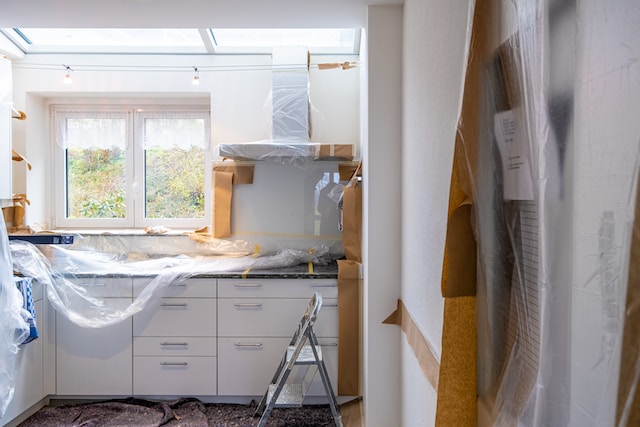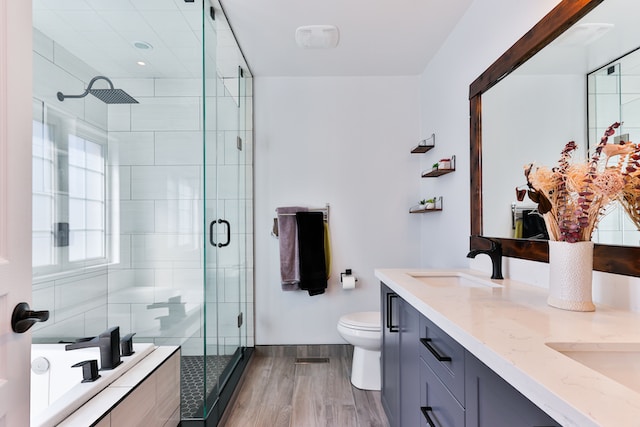Are you thinking about embarking on a home renovation project? It’s an exciting endeavor that can breathe new life into your living space and boost your property’s value. However, before you dive into the world of hammers and paint swatches, there are several crucial factors you should consider – read on to go through the essential things to keep in mind when planning a home renovation, ensuring that your project goes off without a hitch.

Image source: https://unsplash.com/photos/UqNEbyRQ660
1. Budgeting Wisely
Before you even think about knocking down a wall or installing that dream kitchen, you must establish a clear budget. Renovations can quickly become costly, so it’s vital to have a realistic understanding of what you can afford. Start by evaluating your finances and determining how much you’re willing to allocate to your project. Factor in to also find cheap bin hire so that you can manage waste and declutter during your project. Remember to set aside a contingency fund for unexpected expenses, typically around 10% of your total budget. Being financially prepared from the outset will save you from headaches down the road.
2. Define Your Goals
What’s your primary goal for this renovation? Do you want to create a more functional space, enhance aesthetics, or increase your property’s value? By defining your goals clearly, you’ll be better equipped to make informed decisions throughout the process. This clarity will guide your design choices and ensure that your renovation aligns with your objectives.
3. Hiring the Right Professionals
Unless you’re a seasoned DIY expert, you’ll likely need to bring in professionals to execute your renovation. From architects and contractors to interior designers, assembling the right team is critical. Research and interview potential candidates to ensure they understand your vision and have the experience to bring it to life. Also, check references and credentials to guarantee you’re hiring reputable individuals or firms. This step will save you time, money, and stress in the long run.
4. Permits and Regulations
One often overlooked aspect of home renovation is dealing with permits and regulations. Depending on the scope of your project, you may need approval from local authorities. Ignoring this step can lead to legal complications and project delays. Research the specific requirements in your area, and don’t hesitate to seek professional guidance if necessary.
- Initial Research: Begin by researching local building codes and regulations. These can vary from one jurisdiction to another, and even within different neighborhoods. Start with your city or county’s official website, which often provides information on required permits, zoning laws, and other regulations.
- Consult with Local Authorities: Reach out to your local building department or planning office. Their staff can provide guidance on the specific permits and approvals needed for your project. They may also offer valuable insights into any local restrictions or guidelines that could affect your renovation plans.
- Engage a Professional: If your renovation project is complex or involves structural changes, it’s advisable to hire an architect or contractor who is familiar with local regulations. They can help you navigate the permitting process, ensuring that your project complies with all legal requirements.
- Budget for Permit Costs: Remember to include permit costs in your renovation budget. These fees can vary widely, so it’s essential to factor them into your overall expenses. Additionally, delays caused by failing to obtain the necessary permits can be costly, so budgeting for this aspect is crucial for a smooth and cost-effective renovation.
5. Timeline and Scheduling
Time is of the essence when it comes to home renovations. Consider the time frame for your project and any potential disruptions to your daily life. Coordinate with your contractors to establish a realistic schedule. Be prepared for unexpected delays, as they can often occur due to unforeseen issues during the renovation. A well-planned timeline will help manage your expectations and ensure the process runs as smoothly as possible.
6. Material Selection
Choosing the right materials for your renovation is a critical decision that impacts both the aesthetics and longevity of the project. Consider factors such as durability, maintenance, and cost. It’s also essential to select materials that align with your design goals. For instance, if you’re aiming for a modern, eco-friendly look, you may opt for sustainable and energy-efficient materials. Do thorough research, and consult with your design and construction team to make informed choices.
7. Sustainability and Energy Efficiency
Not only can eco-friendly choices reduce your environmental impact, but they can also lead to long-term cost savings. When planning your renovation, explore options like energy-efficient appliances, better insulation, and sustainable building materials. These choices can make your home more comfortable, reduce your utility bills, and enhance its resale value.
- Energy-Efficient Appliances: Consider replacing older, energy-guzzling appliances with modern, energy-efficient ones. Look for appliances with Energy Star certification to ensure they meet high energy-efficiency standards. Upgrading to energy-efficient appliances can significantly lower your utility bills and reduce your carbon footprint.
- Enhanced Insulation: Improving your home’s insulation is a cost-effective way to increase energy efficiency. Proper insulation keeps your home cooler in the summer and warmer in the winter, reducing the need for excessive heating or cooling. You can insulate your walls, and attic, and even invest in energy-efficient windows to minimize heat transfer.
- Sustainable Building Materials: Opt for sustainable and environmentally friendly building materials. Bamboo, reclaimed wood, and recycled metal are great choices for flooring, cabinetry, and even structural components. Not only do these materials reduce your environmental impact, but they also add a unique and eco-conscious touch to your home.
8. Future-Proofing Your Investment
A well-executed renovation not only enhances your living space today but should also consider the future. Think about how your needs and lifestyle might change over time. Are you planning for a growing family, or are you approaching retirement? Future-proofing your investment ensures that your home remains functional and valuable for years to come. This could involve creating flexible spaces, incorporating universal design principles, or planning for technological advancements.

Image source: https://unsplash.com/photos/g51F6-WYzyU
Planning a home renovation is a significant undertaking, and considering these additional factors alongside budgeting, goal-setting, professional hiring, and regulations will set you on the path to a successful project. By carefully managing your timeline, selecting the right materials, prioritizing sustainability, and future-proofing your investment, you’ll create a space that not only meets your immediate needs but also stands the test of time. Remember that a well-thought-out renovation can not only enhance your home but also improve your overall quality of life.